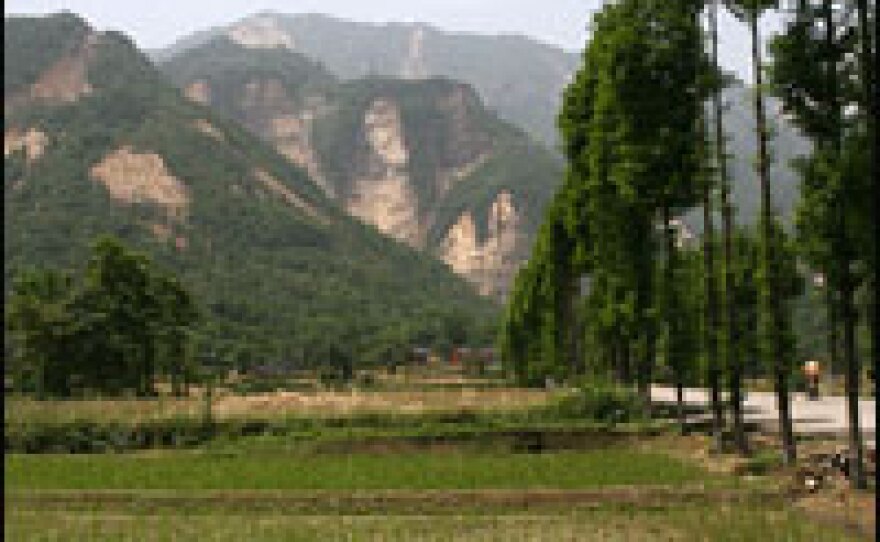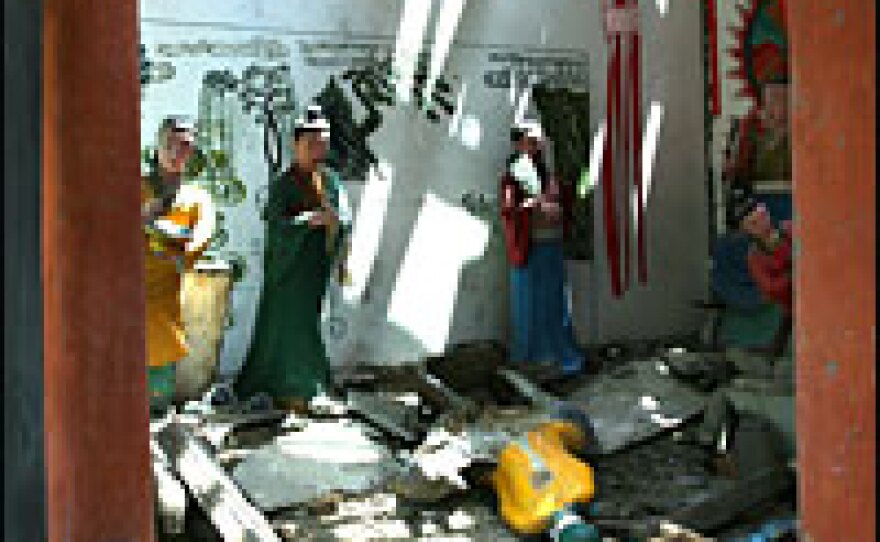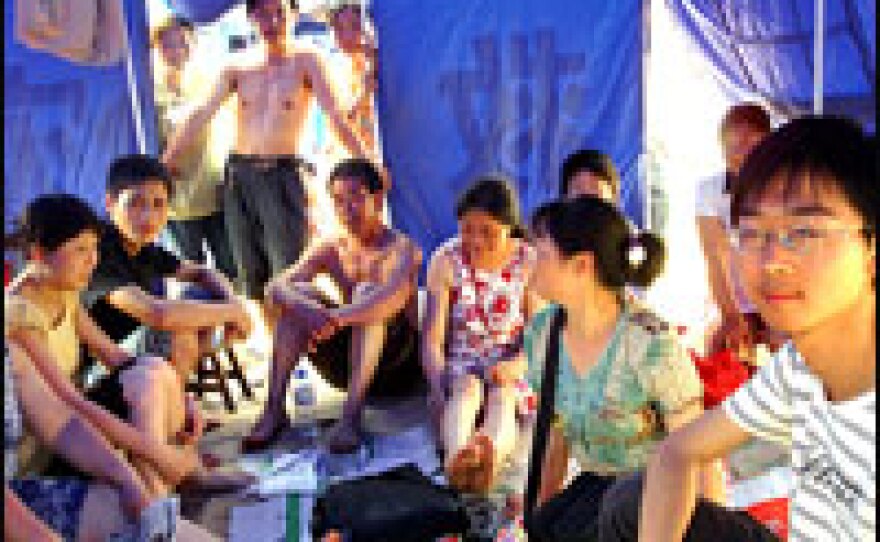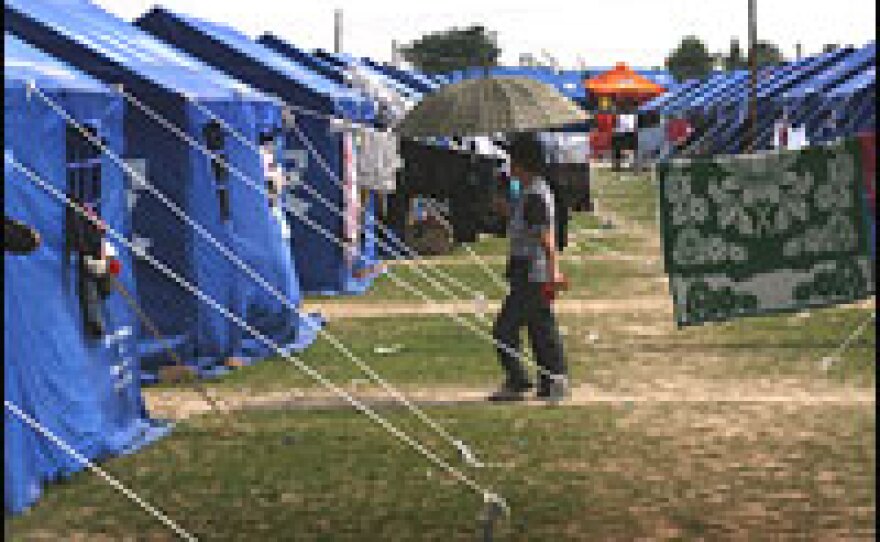



A week after the earthquake in China's Sichuan province, shock has sunk in and people in the disaster area are entering what may prove to be a prolonged temporary living situation.
In the small rural village Red Flag near Gong Xing in the province, the farmhouses had all come down. As of May 15, people were sleeping under tarps. At the time, pig farmer Mao Yun Cheng said he and his neighbors needed water, food, medicine and tents. They had been reduced to one meal a day: a container of instant noodles boiled with creek water that they purified with pills.
Three days later, NPR's Robert Siegel went back to Reg Flag on a hot, sunny day. Temperatures were in the mid-80s. He brought water and instant noodles and found Mao Yun Cheng, his family and his neighbors.
"The government has sent us water, food and tents," Mao says, a lot more positive about his situation than he was before.
He says he and his neighbors still need better tents. His hogs are also a problem because they have no feed and no good shelter from the sun. Mao was grateful to a fault for the water and food. He said perhaps it should go to people more in need.
On Sunday, it was so sunny that the mountain rising just a few miles from Red Flag was visible. Along the green slopes were huge bald spots where rock, soil and forest came loose. At a village close to the foot of the mountain, Bai Xi in Han Wang township, a tree-lined road was flanked by rice paddies. Clear mountain water streamed down through the roadside gutters. Some livestock was penned behind the houses, and the mountain stood majestically straight ahead.
One can only imagine how picturesque Bai Xi was a week prior. Now, families live under the ubiquitous tarps.
One man who had to come to Bai Xi to find his relatives said there used to be a road through a mountain pass a mile or so away. Mountain slopes crashed down on it in the quake. Now the road is impassable.
Four people died in the village, NPR is told. When the mountain shook loose so much earth during the quake, it was as though bombs were falling on the mountainside one after another, according to a man named Tang San Pei.
A local Qing Dynasty Taoist temple from the 18th century, one of the village's tourist attractions, also suffered damage.
Inside, brightly painted statues are seated serenely, but their once-ornate surrounding structure is now a pile of bricks and fallen timbers.
It is the season for harvesting rice and canola in these villages, so many people are loath to leave home even if they have to camp out along the road. But many others have no choice: The places they came from were obliterated in the quake.
Many will go to tent cities for evacuees, like one in the park in the city of Mianzhu where there are rows and rows of blue tents marked "Disaster Relief Only." A public-address system broadcasts radio programs that are interrupted occasionally to page people. In this makeshift city, there's a mess hall and medical staff. But above all, there are tents lined up in rows and the paths between the rows aren't much more than a yard wide.
According to the government, 100,000 tents have been sent to the disaster area. The government has estimated that about 4.8 million people have been at least temporarily relocated.
One woman said there were 20 people in her tent the first night.
Another man, a 20-year-old English major at Mianyang University who goes by the name Frank, showed NPR his family's blue tent. It was was hot, humid and crowded. By late October, it will most likely be chilly and damp in Mianzhu.
No one knows how long people will live in these tents.
The people are asked such questions as: "Can this be rebuilt?" "Will you move back into your home?" "What happens next?" They say it depends. It depends on what the government decides.
Copyright 2022 NPR. To see more, visit https://www.npr.org. 9(MDAzMjM2NDYzMDEyMzc1Njk5NjAxNzY3OQ001))






